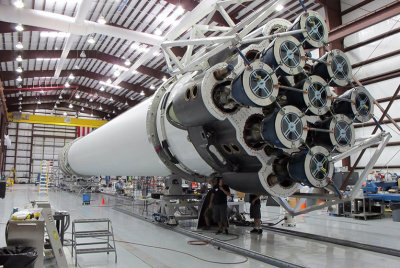Introduction:
The retail and wholesale industry has been an integral part of human civilization for centuries. From local markets to international trade, the exchange of goods has always played a crucial role in economic development. However, with the advent of technology, this industry is undergoing a transformative revolution. Here, we will explore how technology is revolutionizing the retail and wholesale sector and its impact on businesses and consumers.
5 Ways Revolutionizing The Retail And Wholesale Industry
1. E-commerce: The Rise of Online Shopping
One of the most significant technological advancements that have transformed the retail and wholesale industry is e-commerce. The rise of online shopping platforms like Amazon, Alibaba, and eBay has revolutionized how consumers purchase goods. With just a few clicks, people can now buy products from anywhere in the world without leaving their homes.
E-commerce offers several advantages over traditional brick-and-mortar stores. It provides convenience by allowing consumers to shop anytime and anywhere. Additionally, it offers a wider range of products at competitive prices due to increased market accessibility.
Furthermore, e-commerce platforms utilize advanced technologies such as artificial intelligence (AI) algorithms to analyze consumer behavior patterns and offer personalized product recommendations based on their preferences.
2. Supply Chain Optimization
Another area where technology is transforming the retail and wholesale industry is supply chain management. Traditionally, managing supply chains involved manual processes that were time-consuming and prone to errors.
However, with advancements in technology such as the Internet of Things (IoT), Radio Frequency Identification (RFID), blockchain, and cloud computing; supply chain management has become more efficient than ever before.
IoT devices enable real-time tracking of inventory levels across multiple locations while RFID tags provide accurate identification data for each product within seconds.
Blockchain technology ensures transparency in supply chain operations by creating an immutable record of every transaction made throughout the entire process from production to delivery.
Cloud computing allows businesses to store vast amounts of data securely while providing access for collaboration among stakeholders in the supply chain network.
These technologies collectively optimize the supply chain by reducing costs, minimizing stockouts, improving delivery times, and enhancing overall customer satisfaction.
3. Artificial Intelligence and Machine Learning
Artificial intelligence (AI) and machine learning (ML) are revolutionizing various aspects of the retail and wholesale industry. AI-powered chatbots have become increasingly popular in providing customer support, answering queries, and assisting with purchase decisions.
Moreover, AI algorithms analyze massive amounts of data to predict consumer preferences accurately. This enables businesses to personalize their marketing campaigns, offer targeted promotions, and increase customer engagement.
Machine learning algorithms also play a significant role in inventory management by forecasting demand patterns based on historical sales data. This helps retailers avoid overstocking or understocking situations while optimizing their product assortment for maximum profitability.
4. Augmented Reality/Virtual Reality
Augmented reality (AR) and virtual reality (VR) technologies are transforming the way consumers interact with products before making a purchase decision.
AR allows customers to visualize how a product would look or fit in their environment before buying it. For instance, furniture retailers use AR apps that allow users to place virtual furniture items in their homes to see how they would look in real life.
VR takes this concept further by immersing users into virtual environments where they can explore products or experience services firsthand. For instance, automotive companies use VR showrooms where potential buyers can virtually sit inside cars without physically visiting a dealership.
These technologies enhance the shopping experience by providing customers with a more realistic understanding of products’ features while reducing the need for physical visits to stores.
5. Data Analytics for Customer Insights
Technology has enabled businesses in the retail and wholesale industry to gather vast amounts of data about their customers’ behavior patterns/preferences through various touchpoints such as websites, mobile apps, loyalty programs, social media interactions; etc.
Harnessing this data using advanced analytics tools provides valuable insights into consumer preferences trends; buying habits; demographics; etc.
Retailers can use this data to personalize marketing strategies, optimize product assortment, and improve customer experiences. For example, retailers can send targeted promotional offers based on customers’ purchase history or recommend products based on their browsing patterns.
Moreover, data analytics helps retailers identify emerging trends in the market and make informed decisions regarding inventory management; pricing strategies; etc., to stay competitive in the ever-evolving retail landscape.
Get Retail And Wholesale Software Solutions Develop on Latest Technology
Conclusion:
The retail and wholesale industry is undergoing a significant transformation due to technological advancements. E-commerce has revolutionized how consumers shop by providing convenience and access to a wide range of products. Supply chain optimization technologies have improved efficiency and transparency in operations. Artificial intelligence and machine learning are enhancing customer engagement and optimizing inventory management. Augmented reality/virtual reality technologies are revolutionizing the shopping experience. Data analytics provides valuable insights for personalized marketing strategies.
As technology continues to evolve rapidly, it is crucial for businesses in the retail and wholesale sectors to embrace these innovations to stay ahead of the competition. The tech revolution presents immense opportunities for growth, improved customer experiences, and increased profitability while shaping the future landscape of this industry.















